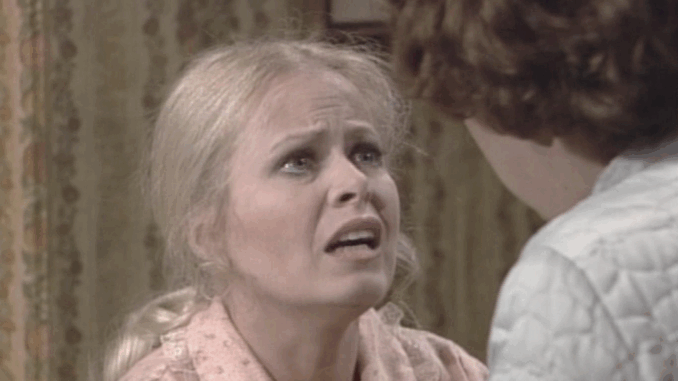
Few television shows in history have had the cultural impact of All in the Family. With its fearless approach to taboo topics and sharp social commentary, the series challenged norms and broke barriers. One of its most powerful episodes, “Gloria the Victim”, is a shining example of how the show blended humor with hard truths—decades before society was ready to fully confront them.
A Pioneering Take on Sexual Harassment
First aired on November 18, 1972, “Gloria the Victim” was shocking for its time—and still packs a punch today. The episode centers around Gloria Stivic, played by Sally Struthers, who returns home shaken after being sexually harassed by her boss at work. What follows is a raw, emotional, and thought-provoking discussion about victim-blaming, power dynamics, and gender roles in the workplace.
In the 1970s, sexual harassment wasn’t even a widely recognized term. But this episode pulled back the curtain, showing viewers the emotional toll and confusion that victims often experience. Gloria’s pain is palpable, and her struggle to be believed—especially by her own father, Archie Bunker—hits home in a way that feels unsettlingly modern.
Archie’s Blind Spot—and Growth
As always, Archie Bunker brings his trademark ignorance and bluster to the table, initially brushing off Gloria’s experience with comments like “men will be men” and “you must’ve misunderstood.” But what sets this episode apart is the tension between Archie’s outdated worldview and his genuine love for his daughter.
Throughout the episode, we see Archie confronted by the reality that his protective instincts and dismissive attitudes cannot coexist. The emotional climax forces him—and the audience—to reevaluate what it means to support a victim.
Gloria’s Strength Shines Through
While All in the Family often revolves around Archie’s reactions, this episode belongs to Gloria. Sally Struthers delivers a powerful performance, portraying a woman who refuses to stay silent, even when the men around her dismiss or minimize her trauma. Gloria’s insistence on being heard, believed, and respected marks a quiet revolution in television storytelling—one that resonates even more in the post-#MeToo era.
Why “Gloria the Victim” Still Matters
In a world still grappling with workplace harassment and gender inequality, “Gloria the Victim” remains painfully relevant. Long before corporate training videos and national movements, All in the Family was sparking uncomfortable but necessary conversations around the dinner table.
The episode doesn’t offer easy answers. But it demands that viewers listen, reflect, and—most importantly—believe victims. That kind of message never goes out of date.
Final Thoughts
“Gloria the Victim” is more than just a moment in television history—it’s a cultural milestone. By addressing sexual harassment with honesty, empathy, and just the right touch of discomfort, All in the Family once again proved why it remains one of the most important shows ever made.
If you’ve never seen this episode, or haven’t watched it in years, now is the time. Because some lessons—especially about justice, empathy, and belief—need to be relearned in every generation.